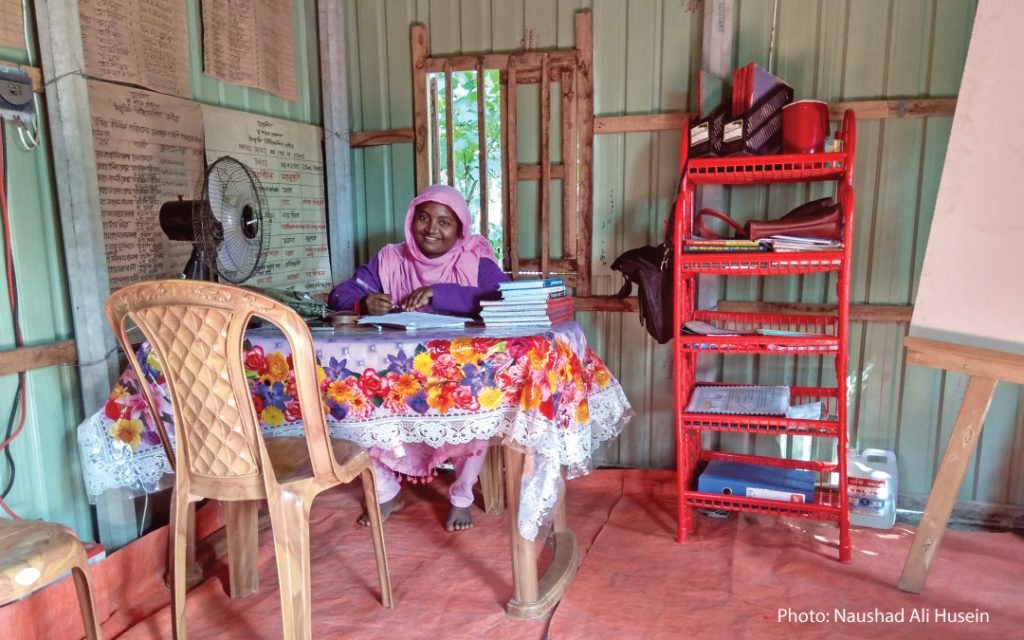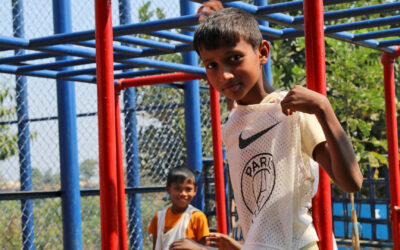Friendship paralegal in Gaibandha fights for a 12-year-old girl to give her exam and stay in school
by NAUSHAD ALI HUSEIN
January 28, 2020
It’s exam day for the grade fivers. The exam centre buzzes with activity as students arrive and prepare to take the test.
As exam time draws near, a huge commotion develops, with a crowd of agitated parents around an insistent headmistress and a very distressed student.
12-year-old Mathi’s school headmistress is refusing to let her sit for the exam. “She is unfit to take the exam. I don’t want her to fail.” A failed examinee would be a stain on her school’s reputation.
However, an admit card has already been issued in Mathi’s name, which means that taking the exam is her legal right. She also knows that the matter is not simply one of passing or failing.
Mathi’s neighbours say that the same headmistress barred four girls from taking their PSC exam last year, and they’re all married now. When a girl in rural Bangladesh enters puberty, society gets anxious about leaving her unoccupied or unsupervised, or in the view of leering strangers. If she’s not at school, there’s a good chance she’ll be married off (despite the fact that marriage below 18 years of age is outlawed).
The headmistress denies barring anyone from their exams, but admits that those who “voluntarily deferred” their exams did end up becoming child brides.
The prospect of being married off instead of going to secondary school has Mathi in tears.
She is determined to pass the exam, and her mother is determined that she should take it. When they couldn’t get Mathi’s admit card this morning, one of the other parents advised her to seek the help of Friendship’s paralegal.

Friendship paralegals are members of village communities who are trained to help locals access their rights and entitlements from the government. They are well known as problem solvers. At the request of Mathi’s mother, Friendship paralegal Noori Chowdhury immediately tried to convince the headmistress to hand over Mathi’s admit card—but the headmistress won’t budge on the matter.
Noori contacts the Assistant Thana Education Officer, the secretary of the exam centre, and other officers who all impress upon the headmistress the fact that what she is doing is illegal, but are unwilling or unable to take any action in the face of her defiance.
Noori calls the Union chairperson, but his phone is off. His office tells her that he won’t be available for at least 90 minutes. The exam will start in 20. Mathi’s classmates are already seated at their desks.
By this time there are more than a hundred parents and villagers trying to convince Mathi’s headmistress to allow her to take the exam. They know Mathi’s education may be her family’s only hope for a better future.
Mathi’s entire family lives in a one-room hut belonging to relative living in the capital, Dhaka. Mathi’s father, a pick-up truck driver, died in a highway accident some three years ago. Besides her mother’s irregular income through “food for labour” and other safety-net programs, the family is completely dependent on relatives.
Noori is trying everything in her capacity. She is calling the head office in Dhaka to get advice from the lawyer. The minutes go by, but the headmistress refuses to relent. The exam begins without Mathi.
Eventually the president of the exam centre, Abdul Khayer, arrives to find a massive crowd.
Noori has already briefed him over the phone, so he looks to the headmistress for an explanation. “The girl can’t even write,” she says.
Khayer makes Mathi copy a few lines from a textbook and sees she has no problem writing. He also realizes when he sees Mathi that it is essential for her to give the exam. She is tall and beginning to mature physically—she is sure to be married off soon if she doesn’t stay in school.
He also realizes that Mathi’s background is unlike her classmates. Mathi’s mother and her neighbours allege that the other students pay the headmistress for private tuitions after school.
Teachers at government schools are prohibited by law from accepting payment for private lessons, because many teachers have historically put little effort into classroom lessons just so they could make more money from tutoring after school. Mathi’s headmistress denies having tutored any of her students outside class.
Neighbours suggest the fee charged by the headmistress is too expensive for Mathi’s family to afford. The first in her family to attend school, Mathi can’t look to anyone at home to help her with her studies either.
Knowing Mathi’s circumstances, and that she has the legal right to sit for the exam, Khayer is eventually able to convince the headmistress.
The hope is that secondary school will do what primary school failed to do in Mathi’s case, which is to bring out her full potential. Her new school has a better reputation than the last one, and its large, airy campus looks more promising. Mathi has received a stack of new textbooks for the coming year.
“I needed to have done better,” says Mathi. She has been able to pass with a 2.66 GPA, which is well below her cohorts at her school, but it enables her to continue her education. Rather than the shackles of an early marriage, Mathi now has a second chance to reshape her destiny, and she knows it.
“I want to complete my schooling and enrol in college. I want to be a doctor,” she says, inspired by the promise of a continued education.
With additional reporting by Benjamin George Coles



